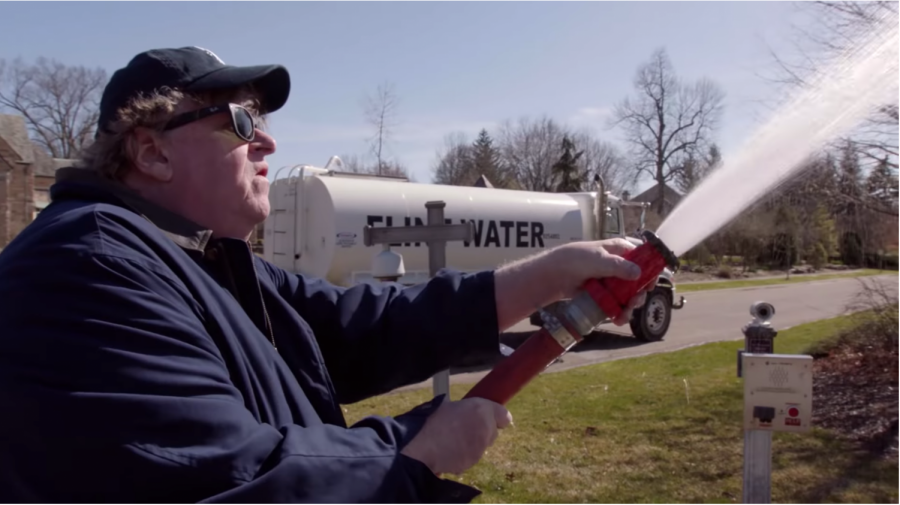“Fahrenheit 11/9”: A very opinionated warning
October 11, 2018
As the credits rolled at the end of Michael Moore’s documentary “Fahrenheit 11/9,” I heard a woman in the back of the Aquarius Theatre yell, “Thank you, Michael!” If you are buying what Michael Moore is selling politically, you, like this woman, will love this movie. If you do not always agree with Moore but still like his documentaries, you will like this one too. But if you are completely opposed to Michael Moore and his rhetoric, then it will be a frustrating two hours.
Moore wrote, directed and produced “Fahrenheit 11/9.” The title parallels that of his 2004 documentary “Fahrenheit 9/11,” which criticized President George W. Bush and the War on Terror. Whereas “Fahrenheit 9/11” set a record as the highest grossing documentary of all time with box office receipts totalling $224 million, “Fahrenheit 11/9” flopped opening weekend, making only $3.1 million. How much money the documentary made is not reflective of its quality.
While the documentary does slam President Donald Trump, “Fahrenheit 11/9” also critiques those responsible for his arrival in the Oval Office. Moore explores the failings, in his eyes, of our democracy that led to Trump.
Moore also considers the havoc Trump has the potential to wreak as president. Rather than focusing on Trump’s words and actions, Moore focuses on the water crisis in his hometown of Flint, Mich. He explains how Michigan governor Rick Snyder got away with poisoning an entire, mostly black, city. He sees Snyder as a precursor to Trump, another shady businessman with no political experience that inexplicably got elected. Moore fears that the events unfolding in Flint could repeat themselves across America.
Michael Moore’s filmmaking makes his political message even more persuasive. He is unique in that he narrates his own documentaries and often puts himself on camera. His message is much more impactful on the audience when he puts his voice and face to it.
Moore finds informative sources for his interviews, such as activists and doctors fighting the Flint water crisis, law professors at Yale and New York University, student activists from Parkland, Fla., and even the last living prosecutor from the Nuremberg trials, Ben Ferencz. Moore understands how to talk to people, how to empathize with them and how to get them to tell a good story.
However, not all of the film works well. Moore’s documentaries, from “Bowling for Columbine” to “Where to Invade Next,” often take on a satirical edge. In “Fahrenheit 11/9,” it is sometimes unclear what tone he is aiming to set. For example, the beginning of the movie covers the night of the 2016 election. The scene plays like a stage tragedy, yet it is unclear whether Moore wants us to laugh or be horrified.
There is not much new in “Fahrenheit 11/9.” If you are expecting Moore to have shifted his views somewhat, or to have tried something new, then you will be disappointed. It is the same Michael Moore with a different topic, and audiences, as evidenced by the movie’s box office total, are not willing to pay for that.
Audiences know that Michael Moore does not like President Trump. They do not need to watch his new documentary to know that. However, the movie is not just a two-hour Trump bashing. Moore highlights issues, like the Flint water crisis, that have been forgotten since the 2016 election. While our political discourse focuses on those in power, Moore is pushing us to focus on those in need. Though President Trump is on the film’s poster, he is not the main attraction.




